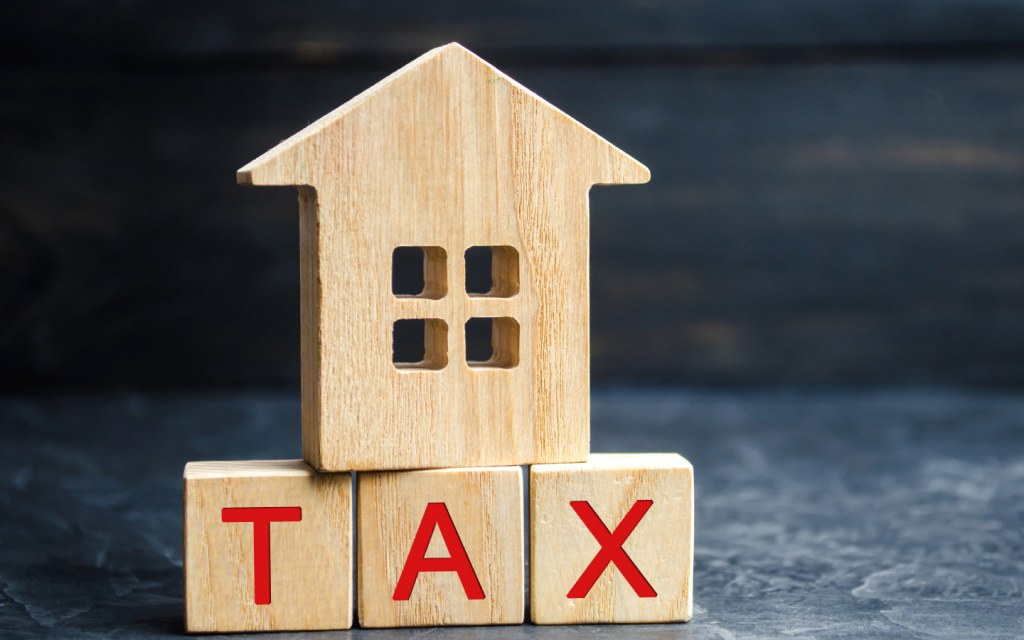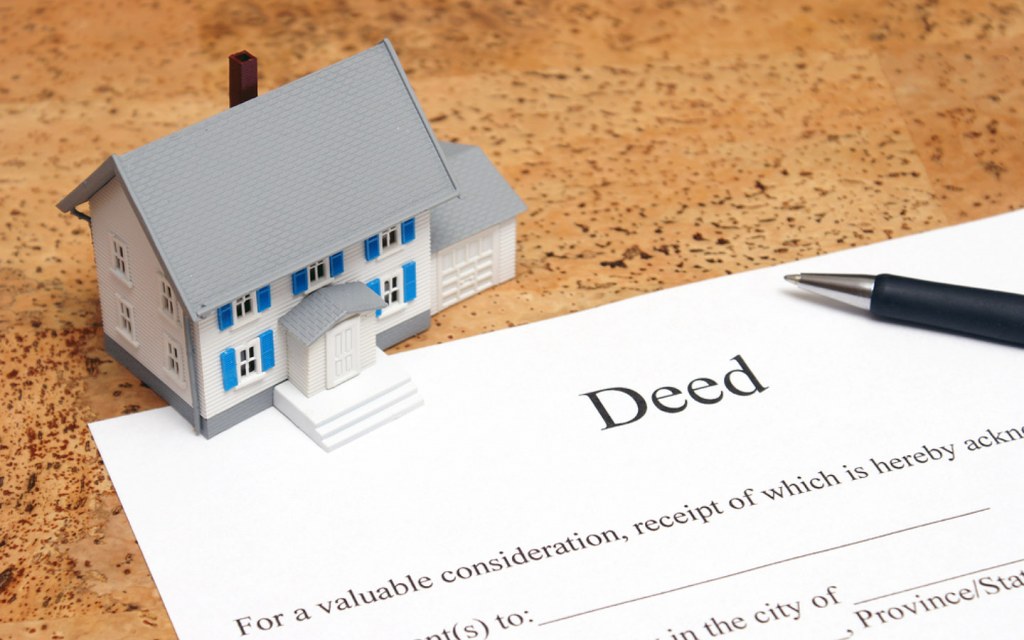Home » Real Estate Trends » A Guide on Selling and Transferring Property in Pakistan
If you are a real estate market entrant, you may be wondering how to go about selling property in Pakistan. The task, as has long been the complaint of many a property affiliate in the country, can seem like a difficult one.
Now the good news is that you no longer need to worry about this problem. This blog, which will likely have you coming back for quick check-ups every now and then, details everything you need to know about the property transfer procedure in Pakistan.
However, before we discuss the details about transferring and selling property in Pakistan, take a moment to read through our real estate glossary to understand what certain terms such as ‘fard’ and ‘bayana’ mean.
Now, let’s start off with what exactly constitutes a transfer of property – as it is understood in the country.
What Does The Transfer Of Property Mean?

Legally speaking, someone owns a property when they possess a ‘title’ for it. In Pakistan, a transfer of property basically comprises the transfer of the title of a landholding from one person to another.
This transfer can take place in a number of ways and doesn’t merely imply a sale. It can also include the concerns of mortgage, gift deed, lease, and exchange. Additionally, there can be different kinds of properties involved in the process.
Real estate, for the most part, deals with immovable properties. Though ‘plot files,’ as they work in the system, could be considered a kind of movable property.
What Is Immovable Property?
An immovable property, in legal parlance, is a type of property that cannot be moved without altering its nature. It is fixed to the earth. This category can include plots, houses, apartments, shops, and all types of built buildings or structures.
Houses, plots, apartments, all count as immovable properties.
Who Can Transfer Property In Pakistan?

Only someone who is able to sign a contract can, legally, transfer property ownership in Pakistan. Under Contract Act 1872, a contract is ‘a binding agreement between two parties’.
The following cannot be a party to a contract:
- A Minor. In Pakistan, currently, this is anyone under the age of 18.
- Someone who is unable to understand the consequences of his actions. This may be due to a permanent or temporary mental disability, or other similar reasons.
- Someone legally barred from signing a contract.
Therefore, it follows that only someone above the age of 18, who is mentally sound and not legally barred from signing a contract, can transfer property in Pakistan.
Maturity and lucidity are requisites of a contract.
The Procedure For Transferring And Selling Property In Pakistan
Token and Bayana

This is usually the first step involved in the process of transfer of property in Pakistan. The potential buyer pays a ‘token’ amount to a seller in order to indicate a willingness to purchase. This is followed by detailed discussion, negotiation, and a series of practical steps for buying a property.
As a result, the seller temporarily stops negotiating the sale of the same property with other potential buyers. If the sale falls through, the token gets returned with appropriate deductions.
The token is usually followed up with a bayana. This instrument serves the same purpose as the token. However, unlike the latter, it makes things slightly more official, as it usually comes coupled with a written agreement.
Below, we’ve listed the details of the property sale agreement form in Pakistan. It is attached with the bayana and includes:
- The complete details of the property
- The terms of sale of the property
- The total amount of money (in consideration of which the seller agrees to transfer)
- The date on which the buyer is bound to pay the remaining sum (after bayana and token)
Required documents for transferring or selling property in Pakistan

To transfer and sell property in Pakistan, you will first need to get all your documents in order.
Here is a checklist of property documents in Pakistan that are needed for the process of sale and transfer:
- Recent photos of the two parties involved (buyer and seller)
- Copies of their National Identity Cards (NIC)
- The original title deed of the seller. The title deed is the document that proves the ownership of the seller.
- The ‘Sale deed’. This is the agreement (contract) signed between the buyer and the seller, largely considered the most important property document in Pakistan.
The transfer process may require some other documents as well, depending on the concerned property’s location:
- The Fard-e-Malkiat (Record of Rights), also simply known as the ‘fard’. The seller can obtain this form from the property registration office. It is a guarantee (from the said authority) that the property belongs to the seller.
- A Non-demand Certificate (NDC). This document shows that you don’t owe any dues on the property. Depending on the property’s location, you can get it from your local development authority office.
- In case you’re interested in a property located within a private housing society, you normally also require a letter from the society to affect transfers. This basically acts as a replacement for a fard document. You need it before you can execute the sale deed.
Societies generally make the transfer process a lot easier for sellers and buyers. Normally, they have a detailed system in place to facilitate this end.
For instance, if you are planning to invest in DHA, Islamabad here is the complete transfer procedure for properties in the popular housing scheme. Similarly, you can also read through the property transfer procedure in Bahria Town if you are interested in buying a property in Bahria Town Islamabad, Bahria Town Karachi or Bahria Town Lahore, among others.
Acquisition of stamp paper and payment of taxes

Finally, you need a stamp paper to draft the sales deed: the contract for sale. The value of the stamp paper required will differ depending on the value of the property it concerns. To follow through with this step, you (as a buyer) will also need to pay all due taxes.
Take note of the following tax breakdown:
- 3% Stamp Duty
- 2% Capital Value Tax
- 1% District Council Fee
- Fixed registration: usually PKR 500
You should also check out our comprehensive guide on property taxes in Pakistan for further clarification on the topic.
Writing the sale deed

It is generally recommended to hire a deed writer or a lawyer to draft the sale deed of the property in Pakistan. They have experience and they know the things that need to be included in any deed. This can generally help avoid any future complications between the parties.
However, it is not compulsory. You can as easily pen down the deed yourself as well. Property sale agreement formats in Pakistan are conveniently available online. You can find them on the Punjab Land Record Authority’s Registration of Deeds portal.
Execution of Sale deed
Lastly, you need to take the sales deed-inscribed stamp paper, along with all the requisite documents noted above, to the sub-registrar’s office. Here, a magistrate/sub-registrar hears both the parties involved in the trade-off. Once satisfied with the proceedings, the said official approves the transaction and registers the deed.
The property is now the legal possession of the recipient.
The transfer is completed when the sale deed is registered with sub-registrar.
Some helpful Tips

The guide laid out above takes you through the basic process of transferring and selling property in Pakistan through a sales arrangement. A newbie looking to buy or sell property in Pakistan, however, may have some other questions weighing him down:
- How do you go about finding the property prices in Pakistan?
- What is the general property dealer commission in Pakistan?
- How do you identify the right property option for investment?
- How do you determine the right price for selling property in Pakistan?
- Is there a set range for reasonable property prices in Pakistan?
- What precautions should one take when buying a property?
Here are the answers to some of your concerns:
PROPERTY PRICES IN PAKISTAN
If you want to know the property rates in your area, please consult the property listings page on Zameen.com – the top real estate enterprise in Pakistan.
This resource will allow you to compare property prices in Pakistan, in your city, and even in your neighbourhood.
PROPERTY DEALER COMMISSION IN PAKISTAN
There are no specific laws that govern the work of real estate dealers and agents in the country. As a result, property dealer commissions in Pakistan are really a matter of custom and are highly variable.
The usual practice for real estate agents is to demand 1% of the value of the property – each from the buyer and the seller – as commission. If both the buyer and seller have different agents, each agent will keep the commission from his own client.
Sometimes, agents’ fees may go as high as 2% of the value of the property. Or they may be happy with a much lower (fixed) amount, regardless of the property price.
FINDING THE RIGHT PROPERTY
If you are looking to buy property in Pakistan, know that your research may make all the difference. It can help you find the right kind of property at the right location and with the amenities you need. The listings page is a good place to start off on this venture.
Check out the property listings for different areas, projects or housing schemes and compare the prices given. Read the descriptions and go through any photos and videos provided. You can also call or email the agents/owners who listed their properties to discuss your options.
Once you have narrowed down a few good choices, it is highly recommended that you go and visit their sites in person. This step will help you determine how good the location is and discover all the amenities nearby. Also, consider meeting up with the agents, society representatives, owner and/or neighbours there while you’re at it.
Finally, confirm that there are no issues with the property in question.
You can also check out our property investment advice for young investors for a better understanding of the real estate market. Furthermore, here’s a guide on how to find the right real estate agent for your property. As for the precautions one should take when investing in the property market, take a look at our list of questions to ask when buying property in Pakistan, as it will definitely help you out.
Do you have any other questions about transferring or selling property in Pakistan? If so, you can share them with us by sending an email to blog@zameen.com. Alternatively, you can also head on over to the Zameen Forum for a detailed conversation on the topic.
To learn more about selling and transferring property in Pakistan, stay connected to Zameen Blog – the best real estate blog in the country. Also, don’t forget to like our Facebook page for the latest updates on the property sector.



